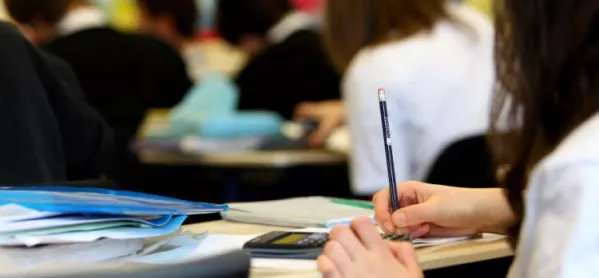More than half of the first round of bids from grammar schools that wanted to expand were turned down, it was revealed today.
Just 16 schools were successful in their bids to create additional places under the government’s selective schools expansion fund last year – which enables schools to expand only if they demonstrate how they will attract more disadvantaged pupils and work with other schools in their area to raise standards.
But the full list of applicants published today shows that there were 41 applications.
The Department for Education has now opened bidding for the second round of the fund.
The government announced in May last year that selective schools would be allowed to expand with backing from a £200 million fund.
The creation of new grammar schools was outlawed in 1998, but existing grammar schools are allowed to expand. Expansion plans can include setting up annexes that can be several miles from the existing school, as long as new provision is fully integrated with the teaching and learning in the new school.
But the plan to expand grammars has been controversial, with Geoff Barton, general secretary of the Association of School and College Leaders, previously saying he was “disappointed” that the government had decided to “spend scarce funding on expanding grammar schools”.
School standards minister Nick Gibb said: "Selective schools are some of the highest-performing schools in the country and so it’s right that more pupils should have the opportunity to benefit from the world-class education they provide.
"It’s also right that access to those places should be fair to pupils from all backgrounds, which is why selective schools must demonstrate how they are going to admit more pupils from disadvantaged backgrounds, if they are going to expand."
Applications to the second round of the selective schools expansion fund will be open for 10 weeks, closing 23 April.
The 16 schools that were successful in their bids for money from the first round were:
- St Michael's Catholic Grammar School, Barnet
- Bournemouth School for Girls, Bournemouth
- Bournemouth School, Bournemouth
- Sir William Borlase's Grammar school, Buckinghamshire
- John Hampden Grammar School, Buckinghamshire
- Colyton Grammar School, Devon
- Chelmsford County High School for Girls, Essex
- Colchester County High School for Girls, Essex
- Sir Thomas Rich's School, Gloucestershire
- The Rochester Grammar School, Medway
- Kendrick School, Reading
- Altrincham Grammar School for Boys, Trafford
- Queen Mary's Grammar School, Walsall
- Queen Mary's High School, Walsall
- Lawrence Sheriff School, Warwickshire
- Wolverhampton Girls' High School, Wolverhampton
The 25 schools that failed in their bids for money from the first round of the fund were:
- The Henrietta Barnett School, Barnet
- Chislehurst and Sidcup Grammar School, Bexley
- King Edward VI Aston School, Birmingham
- Wycombe High School, Buckinghamshire
- The Royal Grammar School, High Wycombe, Buckinghamshire
- Stroud High School, Gloucestershire
- Ribston Hall High School, Gloucestershire
- Marling School, Gloucestershire
- The Crypt School, Gloucestershire
- The Skinners' School, Kent
- Cranbrook School, Kent
- Highworth Grammar School, Kent
- Tunbridge Wells Grammar School for Boys, Kent
- Wilmington Grammar School for Boys, Kent
- Wilmington Grammar School for Girls, Kent
- Rainham Mark Grammar School, Medway
- Skipton Girls' High School, North Yorkshire
- Devonport High School for Girls, Plymouth
- Devonport High School for Boys, Plymouth
- Herschel Grammar School, Slough
- Westcliff High School for Girls, Southend-on-Sea
- Nonsuch High School for Girls, Sutton
- Haberdashers' Adams' Grammar School, Telford and Wrekin
- Stretford Grammar School, Trafford
- South Wilts Grammar School for Girls, Wiltshire




